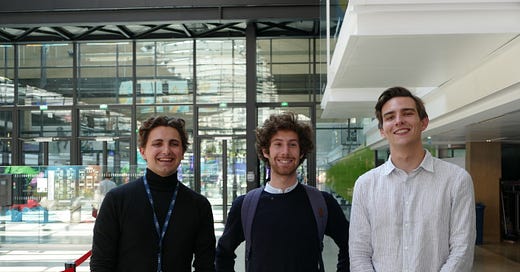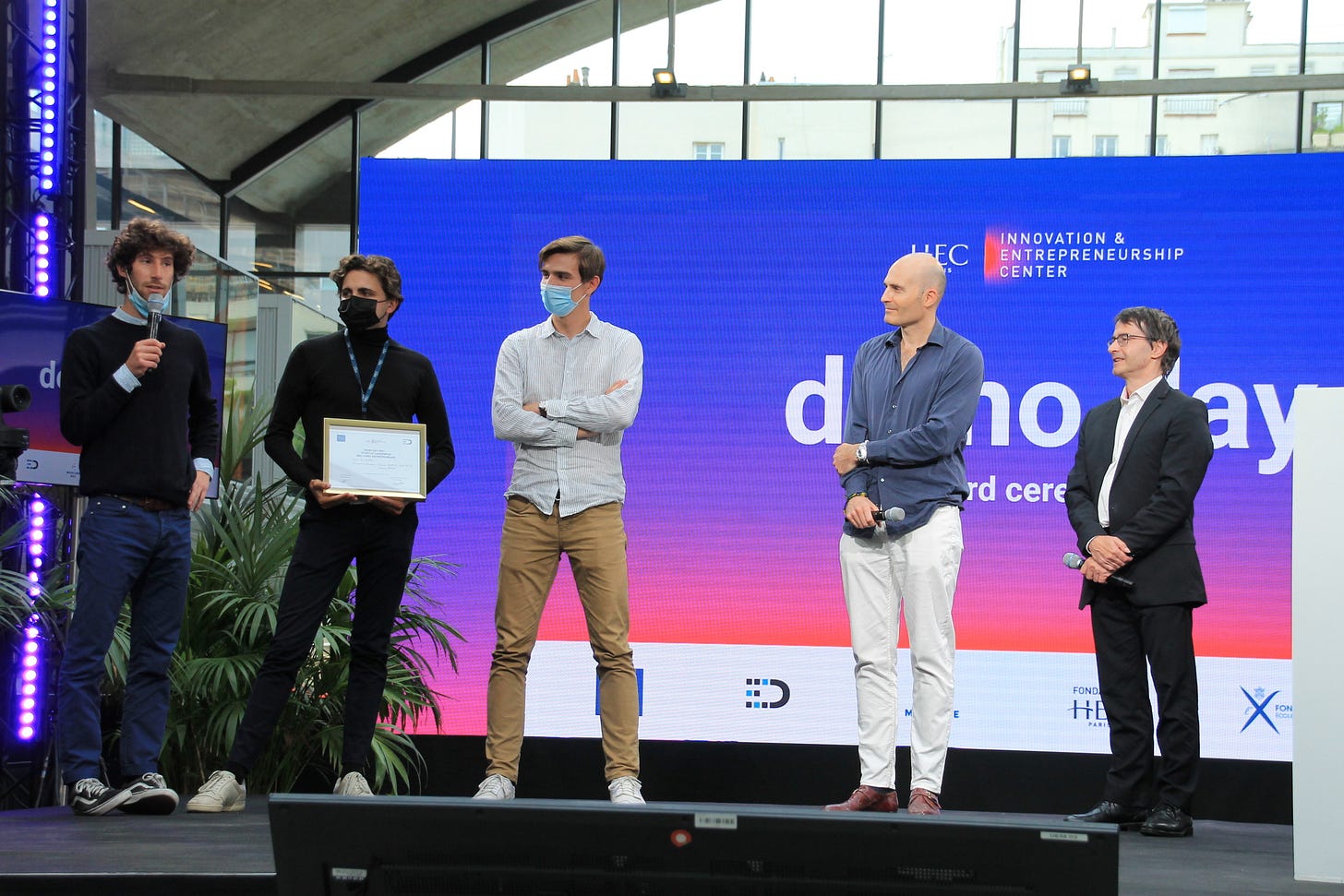The Future of Work is Hybrid 🖥️
How Deskare is exploring the best ways to manage it…
In 2020, COVID-19 compelled millions around the world to work from home. Now employees are demanding increasing flexibility. The hiatus between the traditional in-office model and the newer remote work policies which flourished out of necessity gives us unprecedented opportunity to redesign our working environments and conceive a brand new, more effective operating model. Nobody knows for sure what the office of 2025 will look like, but recent developments have placed the hybrid model at the forefront.
Deskare, an Incubateur HEC Paris startup, is specialized in streamlining hybrid work. In this interview, we will be speaking with Vianney Goater, cofounder of Deskare (along with Thomas Dauphin and Victor Fritz) about some challenges catalysed by the structural shift in the way we work.
What issues are you addressing through your startup Deskare?
Between the latest two lockdowns in France, we noticed that the reoccurring question of who will be at the office and when was raised in all companies simultaneously. The increasingly ubiquitous adoption of remote work brought along some uncertainty as well. Going to the office now requires some planning. Tackling this challenge was one of our main goals in creating Deskare. We wanted to keep the tool as simple as possible, though.
It became clear that this data was precious for HR and Office Managers in order to better understand how often employees were at the office, and how they felt about shifting back to on-site work. This is why we included an analytical tool based on attendance and desk booking data.
According to a report from Institut Sapiens published in March 2021, remote work is linked to a 22% increase in productivity. In reality, it has been brought to attention that this number conceals considerable disparities, especially in regards to organizations centered on innovation, which have very specific needs in terms of employee synergy and greatly benefit from serendipity-prone environments.
How do you take this into account?
It is clear that the boom of remote work doesn’t entail the death of the workplace and on-site collaboration, quite the contrary! From now on, we will only come to the office for the right reasons: important meetings, team events, or for moments of group reflection where nothing can replace physical presence. This is exactly why Deskare is so useful: finding the best moments to organize these collaborative events.
Moreover, we take into account different needs among different teams by making it possible to set up guidelines, specific to each team, concerning physical presence and remote work. You can then choose to have your developers work remotely full-time and arrange in-person meetings once a week with your sales team.
In the long run employees tend to form fixed clusters and develop specific desk booking habits.
How do you maintain some fluidity in desk allocation?
Indeed, we have noticed this habit formation. It appears normal; each employee has a tendency to favor a zone within the workplace. Following our ease-of-use principle, we enable each person to choose a default week, or a default zone or desk, in order to accommodate everyone’s habits and preferences and to further facilitate usage. We are also currently developing a proprietary algorithm which will enable the companies who want to to randomly assign desks in order to mix teams and encourage informal exchanges.
How does an office space’s layout affect the company’s social ecosystem? Will furnishing offices eventually be a part of your offer?
We observe several dynamics. Some organizations (like Pernod-Ricard and their Island in the heart of Paris) chose to invest massively in their office spaces, making the bet that it would drive employees to come to the office and produce more effective teamwork. Other companies chose to rationalize the cost related to office spaces by shifting to lower-cost options or by not opening new offices as their staff increases. This forces them to set up systems of rotating attendance. This is where Deskare comes in handy.
These two dynamics might seem contrary, but strongly suggest that offices are now considered to be much more than just production spaces. Offices are simultaneously meeting spots, creative and learning environments, and in some respects embody the values and history of the organization.
That said, it appears evident to us that Deskare should eventually incorporate office space planning and layout in its offer. This is the logical extension of the service we currently provide.
What advice would you give organizations who aim to entrench their remote work policy?
The keywords here are pedagogy and dialogue. We are in the midst of difficult times, our habits have been turned upside down, and perhaps companies should play a supportive and reassuring role. Conducting experiments and asking for employee input seems crucial to us. Implementing a remote work policy can start out by creating small teams and trying out remote work on different scales, while always making sure that employees are involved in the process. Writing out a remote work agreement can be a good way to ensure all actors are fully a part of the process, and can also bring more clarity as to what is expected.
Unsurprisingly we recommend that companies select the right tools. To assume that we can manage and work in the same way as we did pre-pandemic and with the same tools, in a revolutionized work environment, is illusory. This is why we created Deskare: we can’t expect organizations to be flexible and agile if the tools they are using are static and unyielding.
If you’re interested in Deskare, or if you want to discuss how to streamline hybrid work within your company, please visit our website or contact us directly by email.







